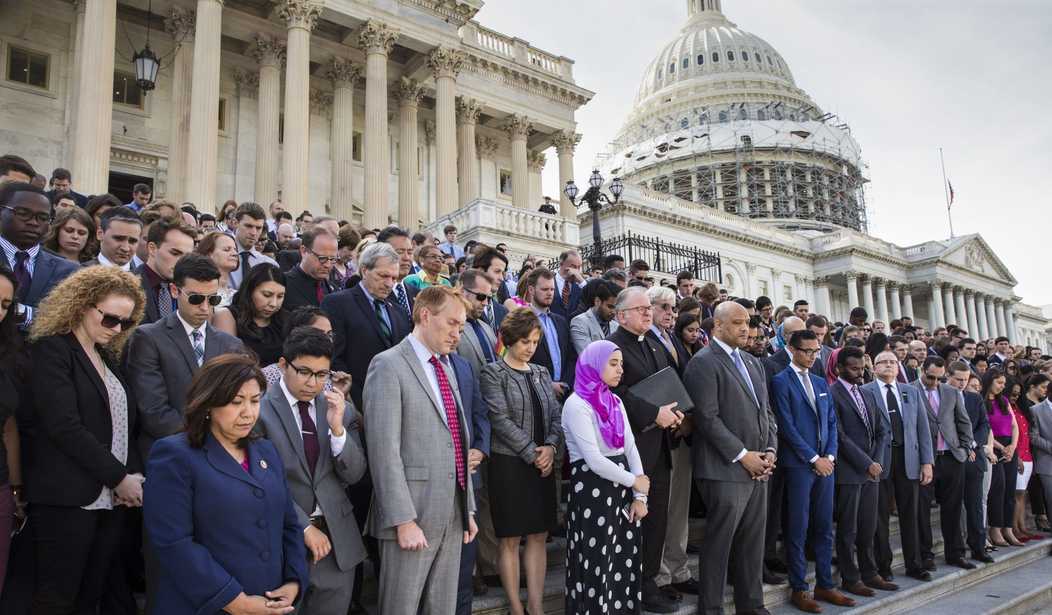WASHINGTON — An analysis released by Pew Research on the first day of the 115th Congress found that 91 percent of lawmakers identify as Christian, compared to just over 70 percent of the American population.
While 23 percent of Americans claim no religious affiliation, only one lawmaker — Rep. Kyrsten Sinema (D-Ariz.) — says she is not religious.
There are 241 Protestant Christians in the new House, 144 Catholics, 22 Jews, 10 for whom information was not available or they refused to answer, seven Mormons, five Orthodox Christians, three Hindus (Reps. Ro Khanna, D-Calif., Raja Krishnamoorthi, D-Ill., and Rep. Tulsi Gabbard, D-Hawaii), two Muslims (Reps. Andre Carson, D-Ind., and Keith Ellison, D-Minn.), two Buddhists (Rep. Colleen Hanabusa, D-Hawaii, Sen. Mazie K. Hirono, D-Hawaii, and Rep. Hank Johnson, D-Ga.), and one Unitarian Universalist (Rep. Ami Bera, D-Calif).
In the Senate, 58 members are Protestant, 24 are Catholic, eight are Jewish, six are Mormon and one is Buddhist.
The earliest comparable data Pew reported for the religious breakdown of Congress is 1961-62, when 95 percent of lawmakers were Christian. There were more Protestants in Congress then, though, at 75 percent.
Among GOP lawmakers, two-thirds are Protestant while 27 percent are Catholic. Among the Dems, 42 percent are Protestant while 37 percent are Catholic.
The Protestant denominations with the highest representation in Congress are Baptist, unspecified denomination, Methodist, Episcopalian, Presbyterian and Lutheran.
There are seven fewer Protestants in this Congress than the 114th, four more Catholics, three fewer Mormons, and two more Jews.
While 82 percent of Republican voters identify as Christian, 90 percent of their lawmakers do. While 63 percent of Democratic voters are Christian, 80 percent of their lawmakers are.










Join the conversation as a VIP Member